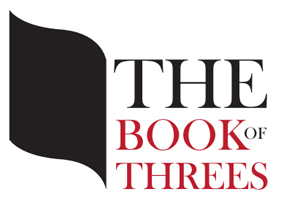
Communication is the cornerstone of human interaction, enabling us to express our thoughts, needs, and emotions. For many, the ability to communicate effortlessly is a natural gift, often taken for granted. However, for individuals grappling with speech-language disorders, this fundamental aspect of human connection can be a significant challenge.
Speech-language disorders (SLD) encompass a diverse range of conditions impacting speech sound production, language comprehension, and effective communication. These disorders manifest diversely from developmental delays in children to acquired conditions due to neurological issues or injuries in adults. Individuals affected by SLD face challenges in accurately producing speech sounds, understanding language, and effectively conveying their thoughts and emotions.
While the hurdles posed by SLD may seem challenging, they are by no means insurmountable. Through appropriate strategies, individuals can unlock communication potential and foster meaningful connections with the world despite facing challenges.
In this article, we will explore three strategies for empowering individuals with SLD to overcome barriers and embrace communication fully.
1. Early Intervention and Assessment
Speech and language disorders are prevalent among children, with nearly 1 in 12 in the U.S. affected by some form of communication disorder. The highest rates occur among children aged 3–6 years, gradually declining as they grow older, reports Medical News Today.
These statistics highlight the importance of early identification and intervention for optimal communication development.
Early intervention is paramount in addressing SLD, as it can significantly impact a person’s long-term communication outcomes. Prompt assessment allows for the identification of speech and language difficulties, enabling tailored interventions to commence at the earliest opportunity. Pediatricians, speech-language pathologists, and educators conduct assessments to evaluate speech sound production, language comprehension, and expressive language skills comprehensively.
Early identification and targeted interventions empower individuals with speech-language disorders to build strong communication foundations, fostering confidence and independence.
2. Speech Therapy Techniques
Speech therapy employs a vast toolbox of techniques tailored to individual needs. These can range from articulation exercises to improve sound production to social communication training that fosters conversation skills. Therapists also utilize technology and engaging games and activities to make learning interactive and fun. The key lies in personalized therapy that ignites motivation and builds confidence, one step at a time.
A) Augmentative and Alternative Communication (AAC)
For some individuals, even with therapy, spoken communication may remain challenging. But this doesn’t mean their voices are silenced. Enter the empowering world of augmentative and alternative communication (AAC). AAC encompasses a range of tools and strategies that supplement or replace spoken language, opening doors to self-expression and connection.
From low-tech picture boards to high-tech speech-generating devices, AAC options cater to diverse needs and abilities. According to WHO, over 2.5 billion people worldwide require one or more assistive products, including software or apps that facilitate communication.
These assistive tools play a crucial role in enhancing communication accessibility for individuals with diverse needs across the globe.
AAC isn’t just about speaking but about empowering individuals to share their thoughts, feelings, and ideas on their own terms. By embracing AAC, you unlock a world of possibilities, ensuring everyone has the chance to participate fully in the tapestry of human communication.
B) Professional Guidance and Therapy Sessions
The journey to overcoming SLDs isn’t one to be traversed alone. Speech-language pathologists (SLPs) are trained professionals who serve as expert guides, offering individualized therapy sessions designed to address specific needs and goals. Through comprehensive assessments, they create personalized treatment plans, utilizing a range of evidence-based techniques tailored to each individual’s unique challenges.
Therapy sessions encompass a spectrum of approaches aimed at addressing speech-language disorders comprehensively. Therapists employ diverse techniques, including articulation exercises and social communication training, to target specific communication challenges. Through the integration of visual aids, storytelling, games, and technology, therapy sessions become dynamic and interactive experiences, fostering meaningful progress and engagement.
Ensure that the professionals you engage with are qualified speech-language pathologists (SLPs). These experts undergo rigorous training and education, typically completing either full-time or online speech-language pathology programs accredited by recognized institutions. By choosing qualified SLPs, individuals can trust in their expertise and commitment to delivering evidence-based therapy tailored to specific needs and goals.
According to Ithaca College, qualified SLPs possess the knowledge and skills to conduct thorough assessments, develop personalized treatment plans, and implement effective interventions. Whether addressing articulation difficulties, language delays, or social communication challenges, SLPs leverage various techniques and tools to facilitate progress and enhance communication skills.
C) Technology and Apps for Speech Therapy
Advancements in technology have revolutionized speech therapy, making it more accessible and convenient. A variety of apps and digital tools cater to individuals with speech-language disorders, offering interactive games and comprehensive language development programs. These resources target specific speech sounds and enhance vocabulary and grammar skills, enriching the communication journey.
According to a study from the National Institute of Health, technology-mediated speech therapy interventions, including digital games, show efficacy. They improve speech and language outcomes in individuals with communication disorders. The study revealed that participants in technology-assisted speech therapy reported increased satisfaction, motivation, and attention during therapy exercises.
Leveraging technology empowers those with SLD to access effective therapy resources, fostering independence and confidence in communication.
3. Lifestyle Modifications and Home Practice
Apart from formal therapy sessions, lifestyle adjustments and regular home practice are crucial in aiding individuals with speech-language disorders. Establishing an environment conducive to communication development entails integrating language-rich activities into daily routines. These practices complement therapy efforts, fostering enhanced communication skills and facilitating progress in individuals with SLD.
Also, minimizing distractions, setting clear communication expectations, and cultivating a supportive environment amplify the effectiveness of speech-language interventions significantly. Embracing lifestyle modifications and consistent home practice accelerates progress and fosters enduring communication competence in individuals with SLD.
Empowering Communication Growth
In the pursuit of overcoming speech-language disorders, the journey toward effective communication is marked by resilience, innovation, and unwavering determination. Through key strategies, individuals with SLD can unlock their communication potential and embrace newfound confidence in expressing themselves.
In our journey through SLD, let’s champion innovation, empathy, and collaboration. Together, let’s dismantle communication barriers and amplify deserving voices.


































